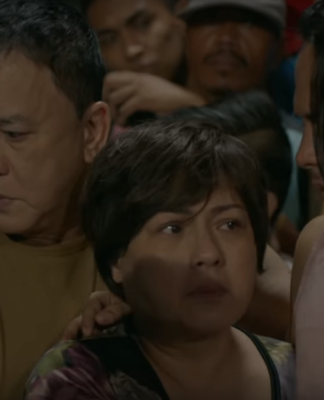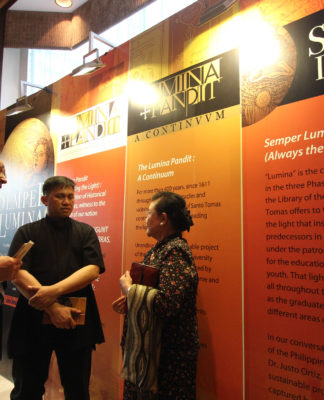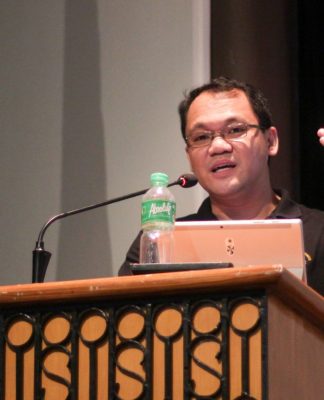PROMOTING sports and exercise science in the country by reiterating the basics, together with the current advances and modern innovations in the field, was the goal of the Philippine Association for Sports and Exercise Sciences (PHASES) in its conference last May 23 to 25 held at the Medicine Auditorium.
The event, organized in collaboration with UST College of Rehabilitation Sciences (CRS), gathered at least a hundred Physical Education teachers, coaches, students, practitioners and researchers from all over the country with the aim to present modern advances, demonstrate new skill and publicize research findings in the field.
“The main objective is [to disseminate information] to our participants who are in the field of sports and exercise sciences,” said Josephine Joy Reyes, sports science department chair.
With participants coming from different parts of the country and even guests from abroad, exchanging of knowledge in the field is important.
“I think this conference is a good opportunity to network with the international people and at the same time give us a venue to share what we have right here in the Philippines,” Reyes added.
With the theme “Advances and Innovations in Sports and Exercise Science,” the conference featured symposia, workshops and lectures with various topics ranging from sports psychology, strength and conditioning, sport coaching and rehabilitation.
Injury management and athlete development
Dr. Edgar Eufemio, president of the Philippine Orthodontic Society for Sports Medicine, said no treatment was the same for every patient in his lecture about managing common sports injuries.
Diagnosis should be done properly to help injuries like sprain and ruptured Achilles tendon heal faster. “You have to know what kind of injury you have [to deal with] to treat it properly. There is no generic way of treating [injuries],” he said.
Dr. Randy Molo, who discussed injury management for athletes, echoed Eufemio saying that doctors should not stereotype athletes based on age, gender and physical attributes. He said individual assessment remained paramount.
“Nobody takes care of an athlete without baseline information,” Molo said.
The head rehabilitation doctor of the Philippine Center for Sports Medicine (PCSM) added that injury and athletes are inseparable, as it is part of the game. “No one escapes injury. It is a way to push them further,” Molo said.
In his lecture, Jay Santos, director of Central Luzon State University Institute of Sports, Physical Education and Recreation, stressed that physical training was not the only way to improve performance.
Academic, social and career skills of a student should also be developed aside from athletic development, he argued.
“Mental skills, like physical skills, need constant practice,” said Karen Trinidad, a sports psychology consultant of the PCSM.
Trinidad pointed out that coaches often focused too much on the physical preparation and technical skills of his players, inadvertently disregarding psychological readiness.
“The essence of mental toughness [is] the ability to replace negative thinking with thoughts that are centered in performance that contribute to improved self-confidence,” she said.
Avenue for knowledge
The three-day conference was spearheaded by PHASES, an organization that “carries out strategic plans for the advancement of sports and exercise sciences in the Philippines.”
PHASES President Jeffrey Pagaduan explained that the organization was created to provide a venue for coaches and practitioners to enhance knowledge in sports and exercise science.
“One of the tasks is to organize seminars that are affordable to coaches with limited resources,” he said.
According to Pagaduan, the University of Santo Tomas was chosen as the venue of the conference because of its support for sports science in the Philippines. In addition, they thought of working with other well-known institutions which led to the collaboration with the CRS Sports Science department.
“So far, the feedback is very positive. We will use these feedbacks to improve,” Pagaduan said. With reports from Angeli Mae S. Cantillana, Daphne J. Magturo and Josef Brian M. Ramil
















